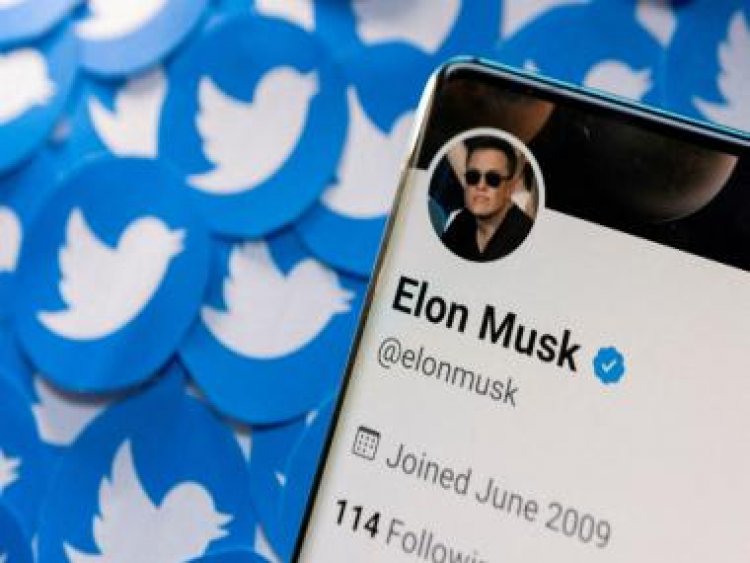Twitter Blue Tick Fiasco: Elon Musk may get sued for forcibly giving some users Twitter's Blue Tick
Twitter Blue Tick Fiasco: Elon Musk may get sued for forcibly giving some users Twitter's Blue Tick

The fiasco over Twitter’s Blue Ticks is still not over, and may actually get Elon Musk sued. So far, things have been chaotic, to say the least. Musk withdrew the final “legacy verified” checkmarks four days ago, leaving Twitter’s blue checks in the hands of users who pay $8 per month for Twitter Blue.
Or so one would have thought.
Elon Musk claimed that he was comping “a few” Twitter Blue memberships for celebrities, primarily LeBron James and Stephen King, who had criticised Twitter Blue verification. During this time, a group of users began a “Block the Blue Checks” campaign to mass-block everyone with a checkmark.
Twitter retaliated by imposing free blue checks on even more accounts, perhaps all live or deceased users with over a million followers.
This is where things got tricky for Twitter and for Musk. Twitter’s own website and app says, that anyone who has a Blue Tick has subscribed to Twitter Blue, and has had their phone numbers verified. This creates a huge problem for people who were “gifted” these verification badges and for inactive or in memorium accounts.
This is all in keeping with Elon Musk’s incessant forum drama on Twitter, but one element has particularly irritated King and others. It’s just that Twitter doesn’t make it apparent that these users aren’t paying for its services. For the time being, hovering over King’s (or another comped user’s) checkmark yields the following:
Others have gone so far as to argue that King’s anger with this fact may constitute grounds for a lawsuit. The claim is that Twitter’s statement violates rules against misleading endorsement, indicating that celebrities are paying for a service they genuinely detest. A user quoted a post referencing a US federal statute that prohibits misleadingly linking someone’s identity to a product.
Alexandra Roberts, a Northeastern University School of Law professor demonstrates that there is no slam dunk case against Twitter. Instead, there are a number of state and federal laws, like the Lanham Act, that you may argue for applying in novel and untested ways. In Colorado, for example, fraudulently declaring “sponsorship, approval, status, affiliation, or connection” for a product is prohibited.
Is the fact that Stephen King paid for Twitter Blue an indication that he approves of Twitter Blue? “Sounds like a reasonable argument,” tweeted Roberts. In an essay regarding how European false endorsement rules could apply, solicitor Simon McGarr raises some similar comments.
However, challenging Twitter to court would need resolving significant complicating circumstances. According to Roberts, bogus endorsement claims are frequently based on advertising efforts, and the blue checkmark isn’t typical marketing.
However, an argument can be made that a Blue Tick indicates that a particular person or a celebrity is indeed paying for Twitter Blue, and therefore endorses it, not in the way they would endorse a product in an advertisement, but endorse it as in they use the product themselves.
Courts would have to consider whether those standards apply in Twitter’s case at all, and if so, whether Twitter violated them. It’s probably not the type of lawsuit you’d want to fight against the attorneys of the world’s second-richest person.
In the United States, the Federal Trade Commission enforces consumer protection rules, and the agency has taken a keen interest in Twitter’s activities.
Also read: As Elon Musk’s Twitter yanks blue checks from agencies, confusion reigns
However, it is focused on concerns related to a consent order Twitter signed in 2011 – namely, the service’s privacy and security. The government refused to comment on whether Twitter’s blue checkmark phrasing may be seen as a deceptive endorsement.
And the whole thing is based on some phrase that Twitter could easily modify. Until last week, the checkmark label indicated that someone was either famous or subscribed to Twitter Blue. it appears to be how the system still operates, and reverting to it would appear to handle the underlying bogus endorsement claims rather nicely.
Read all the Latest News, Trending News, Cricket News, Bollywood News,
India News and Entertainment News here. Follow us on Facebook, Twitter and Instagram.
What's Your Reaction?

























































